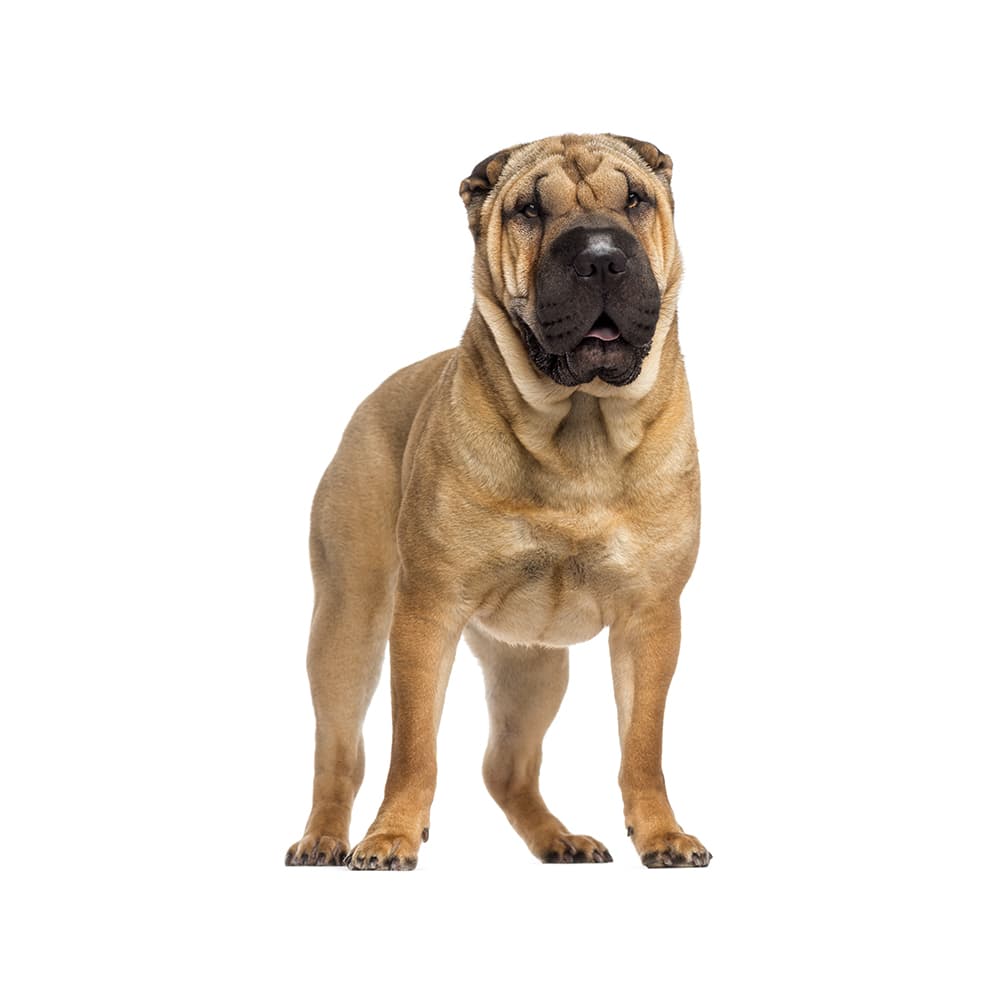Discover your dog's connection to this breed and 200+ others


Discover your dog's connection to this breed and 200+ others



The Shar-Pei is a breed of dog known for its deep wrinkles and blue-black tongue. The breed originates from southern China, and the name Shar-Pei means sand skin, a reference to the texture of their short, rough coat. The Shar-Pei breed has a rich history, dating back over 2,000 years to the Han Dynasty in China. Initially bred for hunting and herding, they were also used for protection. In the mid-20th century, the breed was close to extinction due to factors such as famine and government regulation, but a Hong Kong businessman named Matgo Law worked to revive the breed. With the help of breed enthusiasts in the United States, the Shar-Pei was introduced to the American Kennel Club (AKC) and officially recognized in 1991.
The Shar-Pei is susceptible to lip and skin fold pyodermas, otitis externa, hypothyroidism, patellar luxation, allergies, amyloidosis, entropion, and canine hip dysplasia. They can also be affected by Shar-Pei fever (also known as Familial Shar-Pei Fever or FSF), a periodic fever disorder.
Shar-Pei are known to be intelligent, loyal, and independent. They can be wary of strangers but are generally devoted and protective of their families. They require early socialization and consistent, firm training to prevent them from becoming overly suspicious or aggressive. They are typically calm and quiet dogs, but they can be stubborn, so patient and persistent training techniques work best.
A canine genetic lineage is a group of individuals or entire breeds that descended from common ancestors predating modern breed formation. Often these lineages are associated with a ‘type’ of dog with a unique historical working role and associated behaviors (e.g., herding, scent hunting, etc.).
Spitz and Sled Dogs originate in the Arctic and subarctic regions which caused them the develop adaptations to cold climates. Some of these adaptations give rise to characteristics of the lineage, most notably a dense double coat that helps with insulation. The lineage of these dogs can be followed back to ancient breeds developed by Indigenous people. These ancient breeds were used as an aid for transportation, herding, guarding, and hunting. These jobs have created dogs that are independent, intelligent and have strong work ethics as well as a sturdy body that helps them to pull sleds or go on long journeys over rough terrain.
Example breeds with ancestry from this lineage include Akita, Chow Chow, and Siberian Husky.
The Shar-Pei is one of the few breeds with a blue-black tongue, a characteristic it shares with the Chow Chow, another breed from China.
Shar-Pei puppies are born with their characteristic wrinkles, but they often grow into their skin as they mature, and adults may only have wrinkles on their face and shoulders.
In 1978, the Guinness Book of World Records listed the Shar-Pei as the world's rarest dog breed.
https://www.akc.org/dog-breeds/chinese-shar-pei/
https://www.ukcdogs.com/chinese-shar-pei
https://www.fci.be/en/nomenclature/SHAR-PEI-309.html
Recommended by top vets with decades of experience
21 breeds
64 genetic health markers
50 genetic trait markers
